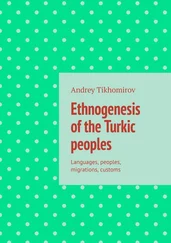There are types of communication, such as the “language” of music, that may allow us to access some kind of universal meaning or emotion, but give us no way to say, “I left my purse in the car.” There are unambiguous systems, such as computer programming languages, that allow us to instruct a machine to perform a certain task, but we must be so explicit about meanings we can normally trust to inference or common sense that it can take hours or days of programming work to achieve even the simplest results. Natural languages may be less universal than music and less precise than programming languages, but they are far more versatile, and useful in our everyday lives, than either.
Ambiguity, or fuzziness of meaning, is not a flaw of natural language but a feature that gives it flexibility and that, for whatever reason, suits our minds and the way we think. Likewise, the fact that languages depend on arbitrary convention or cultural habit is not a flaw but a feature that allows us to rein in the fuzziness by establishing agreed-upon meanings at different levels of precision. Language needs its “flaws” in order to do the enormous range of things we use it for.
But what about irregularity? All those exceptions to the rules? Does language really need that? Probably not. But it comes about as a natural by-product of convention. Languages like Esperanto have an advantage in that they are built from preexisting conventions—the general language habits of speakers of European languages. Esperanto itself does particularly well because it developed its own culture and community, and therefore has better-defined conventions for what words mean and how they should be used. But at the same time, it has sacrificed some of the perfect regularity that it was intended to have. For example, the accusative - n ending used to mark the object of a verb is in the process of being lost. Speakers often leave it out—and joke about what a pain it is to remember to use it—and one study found that even native speakers don’t use it all that consistently, even when the language of their home country has an accusative marker. But they always use it when they say saluton , “hello,” or dankon , “thanks.” Those words were originally formed as the objects of verbs (as in “I wish you greetings” or “I give you thanks”); now they are just set phrases that happen to have an - n ending. But they are used so often, and their forms are so established by habit, or convention, that they are immune from the erosion of the grammatical marker they express.
Some of the irregularities in natural languages came about in a similar way. At one stage in the history of English, the past tenses of verbs were marked by a regular vowel change process; instead of “help/helped,” we had “help/holp.” Over time, - ed became the preferred way to mark the past tense, and eventually the past tense of most verbs was formed by adding - ed. But the old pattern was preserved in verbs like “eat/ate,” “give/gave,” “take/ took,” “get/got”—verbs that are used very often, and so are more entrenched as a linguistic habit (the very frequently used “was/ were” is a holdover from an even older pattern). They became irregular because the world changed around them.
Nobody means for words to become irregular. Some things are well reinforced by the habits of the language users, and other things give way to change. One day someone comes along and asks, “Hey, why doesn’t this one fit the pattern?” and the answer has to be, “Well, 'cause that’s the way we say it.” One day, newcomers to Esperanto may ask the same thing about saluton and dankon . They will also probably want to know why people say stas for “is” (a shortened pronunciation that many young Esperanto speakers use today) instead of estas, or ĝis for “goodbye” (the colloquial rendering of ĝis la revido , “until we see each other again”).
They already have to just learn the idiomatic meanings of certain expressions like ne jukas min (it doesn’t itch me—“I don’t care”) and jam temp' esta ’ (a reference to a line of an old Zamenhof poem that modern speakers use—instead of the proper jam la tempo estas —to mean “the time has come”), and many other phrases you can’t figure out with a dictionary or list of affixes alone. Esperanto is still pretty regular, and still pretty easy to learn, but it’s governed by the way people use it—not by some perfect mathematical system or universal standard of meaning. Our languages have inconsistencies and irregularities because they are run by us, and not by some perfect rule book or grand philosophy. I don’t know about you, but the story of invented languages only convinces me that I wouldn’t have it any other way.
The transmission of customs and conventions, linguistic or otherwise, from one generation to the next is never perfect. Over multiple generations, any sign, symbol, or picture that once conveyed meaning may become completely unrecognizable. This is a problem that was addressed by the semiotician Thomas Sebeok when, in the early 1980s, he was asked by the Office of Nuclear Waste Isolation to prepare a report on how best to encode a warning message on sites where nuclear waste had been buried. To ensure the safety of future generations, the message had to be interpretable for ten thousand years. He recommended extreme redundancy of encoding: the message should be printed in all known languages; there should be pictures, icons, and other relevant symbols; repositories around the world should store technical messages written in mathematical formulas (or perhaps, he suggests, in something like Lincos, Freudenthal’s self-teaching logical language). But even all of this redundancy, he noted, might prove worthless in ten thousand years.
The best way to make sure the message would get through to the future, he proposed, was to include a second “metamessage,” with a “plea and a warning” that every 250 years or so the information (including the “metamessage” itself) be re-encoded into whatever languages, symbols, and unknown-as-of-yet communicative devices were current at that time. Still the possibility would exist that the people of the future would ignore the plea, or forget to comply, so as added insurance he suggests the creation of a sort of folklore, perpetuated through rituals and legends, that would promote the development of a superstition or taboo about the dangerous sites. An “atomic priesthood,” a group of scientists entrusted with the true reasons for the danger, “would be charged with the added responsibility of seeing to it that our behest, as embodied in the cumulative sequence of metamessages, is to be heeded … with perhaps the veiled threat that to ignore the mandate would be tantamount to inviting some sort of supernatural retribution.” Even if the “priesthood” should forget the original reason for its existence, it is hoped that whatever kind of entity it should evolve into would maintain some sort of authority and sense of responsibility toward passing on the folklore.
According to Sebeok’s analysis, the best chance for transmitting meaning ten thousand years into the future was not to find some optimal, stable, universal way to encode that meaning, because there is none. Meaning resides not in the symbol or the image or the language in which it is encoded but in the society that interprets it. New generations are born, societies change, and, with them, the interpretation of meaning. The best shot we had at getting our message across was to try to influence the society of the future—either by entreating it to adapt the encoding of the message to its times or by planting an aura of danger in a broad social tradition.
Читать дальше












